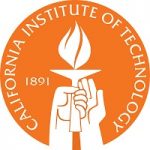项目介绍
Aims and Scope of the Graduate Program
An integrated approach to graduate study combining computation and neural systems is organized jointly by the Division of Biology and Biological Engineering, the Division of Engineering and Applied Science, and the Division of the Humanities and Social Sciences. This curriculum is designed to promote a broad knowledge of aspects of molecular, cellular, and systems biology, cognitive neu-roscience, computational biology and computational neuroscience, information and learning theory, emergent or collective systems, and computer science and electrical engineering in conjunction with an appropriate depth of knowledge in the particular field of the thesis research.
CNS Degree of Doctor of Philosophy
Most of the faculty whose research programs are described in this site are able to accommodate postdoctoral fellows who wish to obtain further research training. In some cases, funding can be provided by research grants or through Institute-administered fellowships. Interested individuals should apply directly to the most appropriate faculty member, indicating, if appropriate, alternative faculty members whose work interests them.
Six nine-unit courses are required during the first year: CNS/Bi/Ph/CS/NB 187, either Bi 9 or equivalent, or Bi/CNS/NB/Psy 150, a neurobiology or modeling course, a math course, and two other CNS, Bi, EE, ACM, or Ph courses (for example, a schedule of CNS/Bi/EE/CS/NB 186, CNS/Bi/Ph/CS/NB 187, Bi/CNS/NB/Psy 150, and CS/CNS/EE 156 satisfies this requirement). CNS students are required to take two additional classes: the one-unit survey course CNS 100, and the four-unit course Bi 252. These eight courses must be taken for letter grades. Students are free to take additional classes, and a research adviser may require that a student take a specific, complementary course as a requirement for joining his or her lab.
Advisory Committee and TA Requirement
An advisory committee of three CNS faculty members is constituted for each student by the CNS admissions committee upon admission to the program. The faculty in whose lab the student is staying first chairs this committee. The advisory committee meets with the student when he or she arrives, guides and approves first-year course choices, and answers questions and offers advice about the program and the way of life in CNS. The CNS faculty are available to students during the year for formal and/or informal discussions. It is expected that each graduate student will serve as a teaching assistant in one or two CNS courses during his or her residency at Caltech as part of the Ph.D. graduation requirement.Breadth Exam
The general knowledge exam satisfies the breadth requirement. Students are encouraged to organize working and discussion groups to prepare for this exam; the format and implementation of such a system, however, is left to the students. This is an oral exam with the four faculty (including the heads of the student’s three rotation labs and one other chosen for “breadth,” of whom one can be from outside Caltech). It should be scheduled by the student (who contacts the committee members) to take place during the last six weeks of the third term of year one. For the exam, the student must answer questions (from more than one category) taken from the list, which is modified each year. (The exam can be retaken after three months.)Admission to Candidacy
To be recommended for candidacy you are required to pass two tests: the general (Breadth) knowledge exam, and the research and candidacy exam. These exams are supervised by the CNS option representative. The research and candidacy exam satisfies the depth requirement. During year two, the student is expected to produce a piece of work of a quality sufficient to be presented at a professional meeting. (The objective of this description is to offer a way to calibrate the level of expected research achievement and involvement. Professional acceptance of the abstract or paper is not a requirement for passing candidacy.) This work is presented in an oral exam in spring term of year two, before the same exam committee (if possible) that conducted part one of the exam. The exam focuses exclusively on research (accomplished and/or planned). During year two, the student may take other courses, as needed, but is expected to present a high standard (quality, originality) of research at the time of this second part of the candidacy exam.Thesis Requirements
Thesis Advisory Committee Meetings
Once admitted to candidacy, the student chooses a Thesis Advisory Committee of at least three faculty. This committee serves as a source of advice independent of the Ph.D. adviser throughout the student’s tenure. Each year, before the end of June, the student delivers a written progress report, followed by a meeting with the Thesis Advisory Committee.
Thesis Examination
This committee should consist of a minimum of four voting members, three of whom must be Caltech faculty. The final oral examination covers principally the works of the thesis, and according to Institute regulations must be held at least three weeks before the degree is to be conferred.CNS Subject Minor
Students majoring in other fields may take a subject minor in CNS, provided the program is supervised by a CNS adviser, is approved by the CNS option representative, and consists of 45 units, including Bi/CNS/NB/Psy 150, CNS/Bi/Ph/CS/NB 187, Bi 252, and other CNS cross-listed classes. A subject minor is not required for the Ph.D. degree in CNS.
联系方式
电话: (626) 395-6811相关项目推荐
KD博士实时收录全球顶尖院校的博士项目,总有一个项目等着你!






